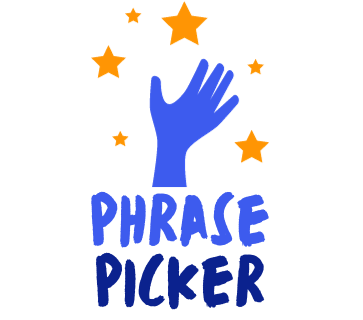Introduction
In our fast-paced world full of electronic communication, you have likely come across the phrase ‘at your earliest convenience.’ Within the spectrum of formal and polite expressions, this phrase gracefully prompts the recipient to action while acknowledging their autonomy and busy schedule. The use of ‘at your earliest convenience’ encompasses both email and traditional written correspondence. This article will dissect its usage, share examples where this phrase fits perfectly, and also provide thoughtful alternatives to diversify your communication skill sets.
Key Takeaways
- Understanding the context and appropriate use of the phrase ‘at your earliest convenience’ can help foster better communication in business and professional settings.
- While the phrase ‘at your earliest convenience’ is respectful and polite, it may not always be the best phrase to use depending on the situation and relationship between the parties involved.
- Alternatives to ‘at your earliest convenience’ can offer nuanced ways to express urgency or request action, including phrases such as ‘when you have a moment’, ‘when it suits you’ or ‘at your discretion’.
Other Ways to Say “at your earliest convenience”
- At your discretion
- When it suits you
- At a time that works for you
- As soon as you find it possible
- When you can fit it in your schedule
- At your leisure
- When you have a spare moment
- At a moment that works for you
- When you find a suitable moment
- When you have a few minutes
- When time allows
- When you’re able to
- Whenever you find some time
- When you have a window
- At a convenient time for you
At Your Prompt Attention
The expression ‘At Your Prompt Attention‘ is a formal variation of the phrase ‘at your earliest convenience‘. This term is typically employed in business communication to professionally express urgency or the importance of a quick response. For instance, instead of saying ‘Please respond at your earliest convenience,’ one might assert, ‘Please respond at your prompt attention‘. Another example is rather than stating ‘Kindly deliver the report at your earliest convenience‘, you can put it as ‘Kindly deliver the report at your prompt attention‘. Choosing this formal variation conveys your respect for the recipient’s time, while emphasizing the necessity for them to handle the said task swiftly and efficiently.
Dear Mr. Johnson,
I hope this email finds you well. Following our phone conversation earlier today concerning the upcoming project, I would like to formally request for a face-to-face meeting.
I believe this would give us a better platform to discuss the project details more extensively. As such, I kindly ask if you could schedule the aforementioned meeting as soon as your schedule permits.
Thank you for considering my request, and I look forward to hearing from you soon.
Kind regards,
John Doe
How To Answer Formal
‘At your earliest convenience’ is a phrase frequently used in formal correspondences, typically in business or professional environments. Employing this phrase in an appropriate context is a polite and respectful way to request a person’s attention to a matter when they find the time. For instance, you could say to a colleague, ‘Please review the financial reports at your earliest convenience‘. This statement avoids setting a specific deadline, but leaves the expectation that the task will be done soon. Alternatively, it can be used to respond to a request in a formal exchange. For example, ‘I’ll get back to you at my earliest convenience‘.
Remember to use this phrase primarily in situations where deference and formality are required. Overusing it in casual settings can potentially make the conversation sound overly formal. Here are a few additional examples of using ‘at your earliest convenience’ appropriately:
- Could you send the meeting minutes at your earliest convenience?
- Please confirm your availability for the conference call at your earliest convenience.
- We require your sign-off on the project at your earliest convenience.
- Please respond at your earliest convenience with any adjustments needed.
Response to ‘At Your Earliest Convenience’
Dear Sir/Madam,
Thank you for your message. I appreciate your patience and understanding. I am writing to respond to your request and I am taking the necessary steps to address it.
In line with your request, I will make sure to attend to this matter at my earliest convenience.
Thanks again for your consideration and I assure you that it would be addressed promptly.
Sincerely,
Your Name
When You Have a Moment
In different contexts, especially in more casual conversations, you could choose to use an informal variant of ‘at your earliest convenience’. Some synonymous phrases to informally express the same idea include: ‘when you catch a breather’, ‘the minute you’re free’, or ‘as soon as you can manage’. Choosing this informal approach breaks down the sometimes rigid boundaries of formal communication, promotes simplicity, and establishes a more relaxed rapport with the recipient.
Dear Sam,
I hope this email finds you well. I just wanted to follow up on the proposal I sent last week. If it’s possible, could you please get back to me when you get a moment?
Hope to hear from you soon.
All the best,
Tom
How To Answer Informally
The phrase ‘at your earliest convenience’ is often used in formal communication, typically to politely ask for a response or action in a non-urgent manner. However, there are several informal alternatives that can be used in day-to-day conversations or in less formal settings. For instance, if a friend asks for details about an upcoming party, you could say, ‘Sure, I’ll get that to you when I can.’ Or, if your coworker requests a file, you can respond with, ‘I’ll send it over as soon as I get a minute.’ These phrases convey the same message but in a more relaxed, friendly way.
Understanding when to use such phrases largely hinges on the context. ‘At your earliest convenience’ is best suited for professional settings where more formal language is expected. Informal alternatives, on the other hand, are perfect for casual situations where formality isn’t required. Say, for instance, your roommate asks when you’ll be able to fix a leaking tap, a suitable response could be, ‘I’ll sort that out first thing tomorrow.’ In these scenarios, rapport and familiarity trump protocol and formality.
- When I find some time, I’ll do that.
- I’ll do it as soon as possible.
- I’ll get to it first thing in the morning.
- When I get a moment, I’ll take care of that.
- I’ll handle it the first chance I get.
Dear Reader,
Thank you for your email. I appreciate your quick response and value your continued correspondence.
In response to your request, I will attend to the matter and get back to you as soon as I possibly can.
Feel free to reach out if you require further assistance or have additional queries. I’m happy to assist!
Best regards,
[Your Name]
Is It Correct to Say “at your earliest convenience”?
It is indeed correct to say, ‘at your earliest convenience’. This phrase is commonly used in professional contexts to convey the need for something to be done as soon as the other party is able to do so. Although neutrally expressing the urgency of the situation without setting a specific deadline, it also sensitively acknowledges the recipient’s potentially busy schedule.
As for the tone, it is neither rude nor too casual. ‘At your earliest convenience’ carries a respectful and professional tone. It communicates an expectation, but by giving the other person the authority to choose when they address the matter, it ensures the request is not seen as pushy or impolite.
Alternatives to this phrase for some variety in your professional language could include: ‘when you have a moment’, ‘as soon as you are able’, or ‘when you find the time’. Every one of these phrases shares the respectful tone and the flexibility of ‘at your earliest convenience’.
In conclusion, we hope this discussion has improved your understanding and use of the phrase ‘at your earliest convenience’. Do continue to use it, but now, with enhanced confidence in its appropriateness and impact.



